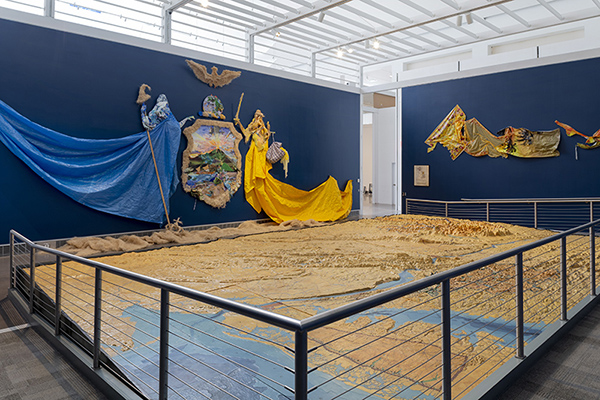Camille Hoffman
Adjunct Instructor
Camille Hoffman (b. Chicago, IL) earned an MFA from Yale University (2015), a BFA from California College of the Arts (2009), and was a recipient of the Carol Schlosberg Memorial Prize for excellence in painting from Yale University, a National Endowment for the Arts scholarship, a Benjamin A. Gilman International Scholarship for research in Spain, and the Van Lier Fellowship from the Museum of Arts and Design (MAD).
Camille Hoffman's current work is a mixed-media meditation on Manifest Destiny and its representation in the romantic American landscape. Reflecting on the embedded and latent meanings around light, nature, the frontier, borders, race, gender and power in influential American landscape paintings of the 19th century, she uses materials collected from her everyday life, including holiday-themed tablecloths, discarded medical records, nature calendars, plastic bags and paint, to craft imaginary landscapes that are grounded in accumulation, personal narrative and historical critique. Her paintings and installations are layered geographies, in which these fragments of cultural objects are chromatically twisted and blended into complex wholes. Taking inspiration from the Philippine weaving and the Jewish folk traditions of her ancestors, along with traditional landscape painting techniques from her academic training, she interweaves image with refuse in order to reveal seamless yet textured transcultural contradictions. Disrupting visual perception, her scraps of materials take on new life, becoming a vehicle of territorial reclamation and spiritual agency for the artist amid the pressures of economic and political globalization in the anthropocene.





